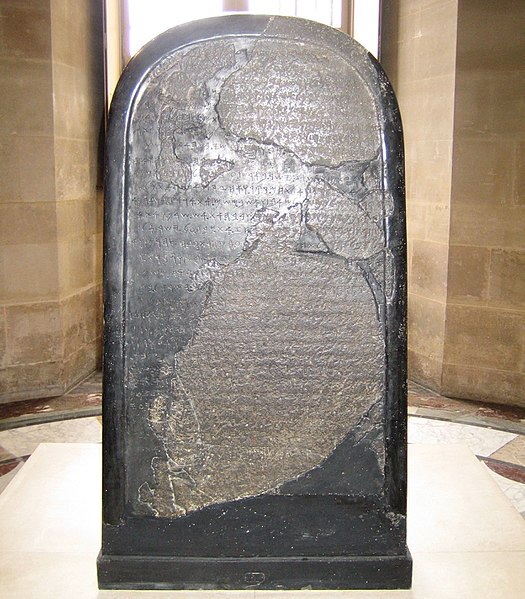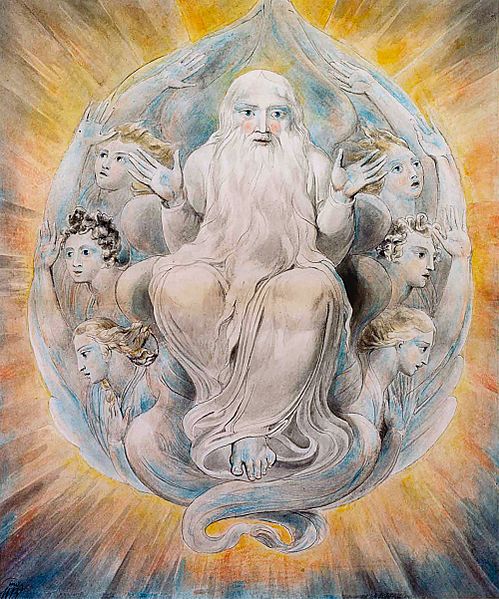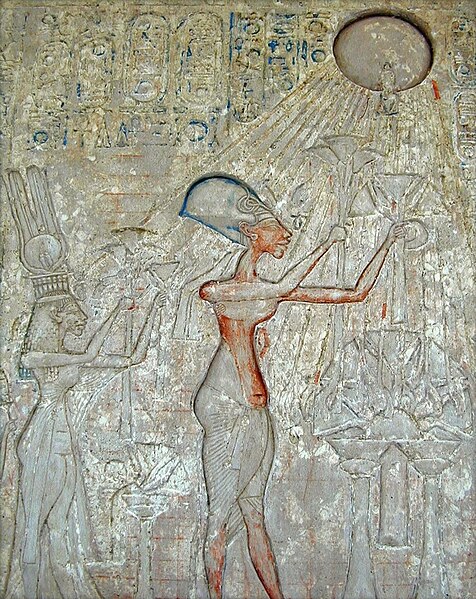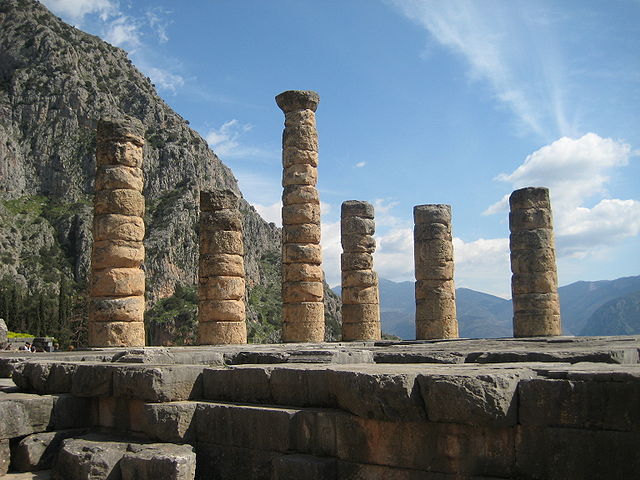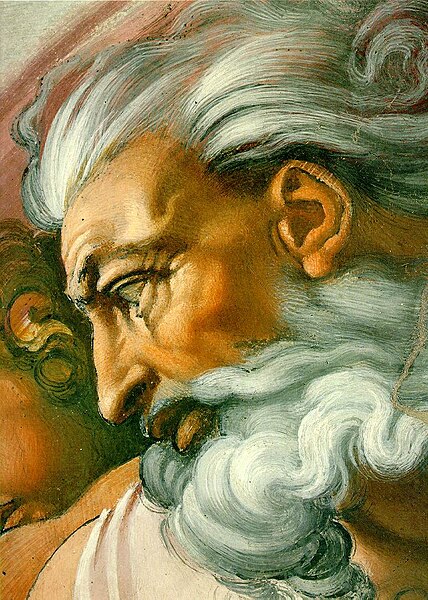In monotheistic belief systems, God is usually viewed as the supreme being, creator, and principal object of faith. In polytheistic belief systems, a god is "a spirit or being believed to have created, or for controlling some part of the universe or life, for which such a deity is often worshipped". Belief in the existence of at least one god is called theism.
The Mesha Stele bears the earliest known reference (840 BCE) to the Israelite God Yahweh.
Thomas Aquinas summed up five main arguments as proofs for God's existence (painting by Carlo Crivelli, 1476).
Isaac Newton saw the existence of a Creator necessary in the movement of astronomical objects (painting by Godfrey Kneller, 1689).
God Blessing the Seventh Day, 1805 watercolor painting by William Blake
Monotheism is the belief that one god is the only deity. A distinction may be made between exclusive monotheism, in which the one God is a singular existence, and both inclusive and pluriform monotheism, in which multiple gods or godly forms are recognized, but each are postulated as extensions of the same God.
Pharaoh Akhenaten and his family adoring the Aten
Fictionalized portrait of Xenophanes from a 17th-century engraving
Remains of the Temple of Apollo at Delphi, Greece
God in The Creation of Adam, fresco by Michelangelo (c. 1508–1512)

